Politics
Erdoğan chairs key Cabinet meeting amid Iranian-Israeli conflict
Ministers will meet at the presidential complex on Monday afternoon for a Cabinet meeting. President Recep Tayyip Erdoğan will chair the meeting, where the ongoing conflict between Iran and Israel will dominate the agenda, media outlets reported.
Erdoğan and Foreign Minister Hakan Fidan engaged in a phone diplomacy since Israel launched attacks inside Iran on Friday. Türkiye sought to de-escalate tensions and raised concerns over Israel’s actions, which aim to “drag the region into the fire,” according to a statement by Erdoğan.
Iran responded to Israel’s attacks by firing a barrage of missiles over the weekend in several Israeli cities while Erdoğan held talks over the phone with several leaders, including Iranian President Masoud Pezeshkian. Significantly, he had held two phone calls with U.S. President Donald Trump on Saturday and Sunday, voicing Türkiye’s readiness to end the conflict.
Erdoğan is scheduled to address the nation after the Cabinet meeting and speak about the discussions at the meeting.
At the meeting, Erdoğan and ministers will also discuss the current stage of the terror-free Türkiye initiative launched last year. The Cabinet will review the process of the dissolution of the terrorist group PKK after the latter announced it in May.
Politics
Analyst says Akkuyu strengthens Türkiye’s hand in diplomacy
Türkiye’s first nuclear power plant, built by Russia’s state-owned nuclear company Rosatom, is a strategic infrastructure project that strengthens the country’s energy security, economic resilience and diplomatic leverage, a political science expert said.
Ismail Cingöz said the Akkuyu Nuclear Power Plant should be evaluated beyond short-term political debates and narrow financial calculations.
“Having a nuclear power plant does not simply mean producing electricity,” Cingöz said. “It creates strategic capacity that gives countries diplomatic weight in the international system.”
He said nuclear energy has moved to the center of global energy policy as countries seek to ensure energy security, stabilize prices and reduce carbon emissions.
“Major economies such as the United States, France, China and South Korea have returned nuclear power to the core of their energy strategies,” Cingöz said, adding that Akkuyu shows Türkiye has aligned with this global trend.
Cingöz said one of Akkuyu’s key contributions will be uninterrupted baseload power. Once fully operational, the plant is expected to supply about 10% of Türkiye’s electricity demand, replacing 35 billion to 40 billion kilowatt-hours of energy currently generated from imported natural gas and coal each year.
“This is not a temporary saving but a structural shift in Türkiye’s energy trade balance,” he said.
Addressing criticism of the project’s power purchase guarantees, Cingöz said such mechanisms are standard in nuclear financing worldwide and are limited in scope and duration.
“Nuclear projects cannot be assessed with simple profit calculations,” he said. “Their value lies in import substitution, price stability, supply security and long-term strategic benefits.”
Cingöz also said Akkuyu is among the largest single foreign direct investments (FDIs) in Türkiye, financed under a build-own-operate model without burdening the public budget.
Built under International Atomic Energy Agency standards, the plant will operate within one of the world’s strictest nuclear safety frameworks, he added.
“Nuclear power strengthens a country’s diplomatic position by demonstrating long-term planning and institutional capacity,” Cingöz said. “Akkuyu is more than an energy project.”
Politics
Turkish official urges caution over Iran-US talks, says tensions remain
A National Intelligence Academy (MIA) official said Tuesday that recent positive rhetoric surrounding talks between Iran and the U.S. should be viewed with caution, warning that the underlying tensions between the two countries remain unresolved and could still escalate.
Speaking to Anadolu Agency (AA) reporters on the sidelines of a program titled “Türkiye-Africa Strategic Dialogue,” held in Ankara, Hakkı Uygur addressed questions about rising regional tensions and the status of Iran-U.S. negotiations.
Uygur said it was premature to suggest that long-running disputes between Washington and Tehran had eased, despite both sides describing recent negotiations as constructive.
“I think these talks should be interpreted as attempts by both sides to buy time and play to their domestic audiences,” Uygur said. “It is far too early to say the problems have been resolved.”
He noted that similar diplomatic engagements in the past had failed to prevent conflict. Uygur recalled that earlier rounds of talks between Iran and the U.S. were held in Oman, followed by what he described as the outbreak of a 12-day conflict in June 2025 after the fifth round of negotiations.
“The two sides can talk on the one hand and still clash on the other,” Uygur said.
“While both claim the talks were positive, they continue to issue military threats and display naval power. That alone shows the situation has not stabilized.”
Uygur said military movements in the region, including U.S. naval deployments, increased coordination between U.S. and Israeli military officials, and the presence of British F-35 fighter jets in Cyprus, should be closely monitored. He added that such developments suggest both sides remain on high alert.
Turning to the substance of the negotiations, Uygur said Iran’s room for concessions is limited, while demands from U.S. President Donald Trump are extensive. He said key questions remain unanswered, including what Iran would receive in return for halting uranium enrichment and how quickly sanctions could realistically be lifted.
Uygur referenced the 2015 nuclear deal, formally known as the Joint Comprehensive Plan of Action, noting that sanctions relief was slow and incomplete even after Iran complied with the agreement. He added that Iran remains skeptical that meaningful economic benefits would follow any new concessions, particularly after Trump withdrew the U.S. from the deal during his previous term.
“Even if Iran does everything that is asked, it knows the gains may be limited,” Uygur said. “That explains why Tehran is proceeding cautiously.”
Uygur said recent comments by Foreign Minister Hakan Fidan advocating a step-by-step approach appear to have influenced the process, with the latest talks in Oman reportedly focused solely on the nuclear issue rather than broader regional disputes.
However, Uygur warned that even a potential agreement between Washington and Tehran could face obstacles from Israel. He said Israel has historically opposed any deal it views as legitimizing Iran’s regional influence.
Israeli Prime Minister Benjamin Netanyahu is expected to raise Iran as a key issue during an upcoming visit to Washington, Uygur said, adding that Israel could still take unilateral action even if the U.S. and Iran claim progress.
“Even if Iran and the United States say they have reached an understanding, Israel could take the initiative, as we have seen before,” Uygur said.
He concluded that while diplomacy continues, the risk of renewed confrontation remains high and the broader dispute is far from settled.
Politics
TRNC president, UN chief to meet in New York
The U.N. secretary-general will meet with the Turkish Republic of Northern Cyprus (TRNC) President Tufan Erhürman in New York on Wednesday, a spokesperson for the global body said Monday.
“The meeting will be an opportunity to meet the new leader of the Turkish Cypriot community for the first time and to discuss the Cyprus issue,” Stephane Dujarric told a news conference.
Erhürman won the TRNC presidential election last October.
Dujarric also said that Guterres will also speak to Nikos Christodoulides, the Greek Cypriot Administration leader, “in due course.”
The U.N. spokesperson’s office also told Anadolu Agency (AA) in a statement that Maria Angela Holguin, the U.N. Cyprus envoy, held a meeting with the leaders of the TRNC and the Greek Cypriots in the island’s U.N.-controlled buffer zone.
“She continues to work with both leaders, including toward progress on the agreed trust-building initiatives, particularly the opening of additional crossing points, as soon as possible,” the statement added.
Cyprus has been mired in a decades-long dispute between Greek Cypriots and Turkish Cypriots, despite a series of diplomatic efforts by the U.N. to achieve a comprehensive settlement.
Ethnic attacks starting in the early 1960s forced Turkish Cypriots to withdraw into enclaves for their safety.
In 1974, a Greek Cypriot coup aimed at Greece’s annexation of the island led to Türkiye’s military intervention as a guarantor power to protect Turkish Cypriots from persecution and violence. As a result, the TRNC was founded in 1983.
It has seen an on-and-off peace process in recent years, including a failed 2017 initiative in Switzerland under the auspices of guarantor countries Türkiye, Greece, and the U.K.
The Greek Cypriot Administration entered the European Union in 2004, the same year that Greek Cypriots single-handedly blocked a U.N. plan to end the longstanding dispute.
Politics
US judge dismisses removal case against Turkish student held by ICE
A U.S. immigration judge on Monday terminated removal proceedings against Turkish graduate student Rümeysa Öztürk, ending the government’s effort to deport her nearly a year after her arrest by immigration agents, the American Civil Liberties Union (ACLU) said.
Özturk, a Tufts University Ph.D. student in child development, was detained by plainclothes Immigration and Customs Enforcement (ICE) agents in March 2025 in Somerville, Massachusetts, after co-authoring a pro-Palestinian opinion piece in a student newspaper. Her lawyers said the judge found that the Department of Homeland Security lacked legal grounds to remove her from the U.S.
“Today, I breathe a sigh of relief knowing that despite the justice system’s flaws, my case may give hope to those who have also been wronged by the U.S. government,” Öztürk said in a statement released by the ACLU.
She added that while the harm she endured could not be undone, the ruling showed “some justice can prevail after all.”
The Trump administration had argued that Öztürk was removable under the Immigration and Nationality Act, claiming her activities posed adverse foreign policy consequences and amounted to support for the Palestinian group Hamas. Öztürk’s lawyers have said the allegations were retaliatory and tied solely to her protected speech.
Following her arrest, Öztürk was transferred across multiple states – from Massachusetts to Vermont and later Louisiana – without prior notice to her attorneys, according to court filings. A federal judge in Vermont ordered her release on bail six weeks later.
Öztürk’s legal team challenged her detention as unconstitutional, arguing that it violated her First and Fifth Amendment rights.
In December, a federal judge ruled that the government had wrongfully terminated her student visa record, allowing her to resume her academic program. The government has appealed that ruling, though her visa record remains reinstated.
“The Trump administration has weaponized our immigration system to target valued members of our communities, including scholars like Rümeysa,” said Mahsa Khanbabai, one of Öztürk’s attorneys.
She said the case illustrated how immigration laws were used to silence advocacy related to Palestinian rights.
Jessie Rossman, legal director of the ACLU of Massachusetts, said the ruling highlighted the importance of judicial oversight in immigration cases.
“Without federal court jurisdiction, the government could punitively and unlawfully detain any noncitizen for months based solely on their speech,” Rossman said.
Öztürk’s separate civil lawsuit challenging her detention remains pending in the federal appeals court. She is among several international students targeted in the Trump administration’s crackdown on pro-Palestine campus activists, including Mahmoud Khalil and Mohsen Mahdawi.
The Trump administration has alleged that Öztürk, Khalil and Mahdawi engaged in activities supporting Hamas but has not presented evidence to substantiate the claims.
An unsealed State Department memo revealed last month that U.S. officials had no evidence against Öztürk beyond the article she co-authored for a student magazine, even as officials moved to revoke her student visa.
The internal memo, dated March 21, 2025, and unsealed by a federal judge, states that the Department of Homeland Security referred Öztürk for visa revocation after she co-authored an opinion piece in the Tufts student newspaper criticizing the school’s response to Israel’s genocidal war on the Gaza Strip.
U.S. Senator Ed Markey welcomed the judge’s decision while criticizing the case as unjustified from the outset.
“I’m grateful a judge has terminated removal proceedings against Rümeysa Öztürk. But let’s be clear: she never should have faced removal in the first place.
“Rümeysa is an example to us all of what it means to speak truth to power. Her courage and grace are inspiring,” Markey said on the U.S. social media company X’s platform.
Politics
AK Party says Istanbul polling shows rebound in voter support
The ruling Justice and Development Party (AK Party) said Tuesday that its support in Istanbul has increased, citing internal polling as party officials vowed to intensify preparations for upcoming national and local elections.
Speaking at a party meeting organized by the AK Party’s Istanbul branch at the Bahçelievler Congress Center under the theme “Being One in Istanbul,” Istanbul Provincial Chairman Abdullah Özdemir said surveys show the party’s vote share in the city has risen since last year’s elections.
According to Özdemir, an internal poll conducted one year after the most recent elections showed AK Party support in Istanbul at 35.5%. He said the latest figures put the party’s support at 41.7%. Özdemir added that while AK Party district municipalities received an average of 46.1% of the vote in the 2024 local elections, recent polling shows that figure rising to 51.8%.
The meeting reviewed party activities since the last provincial congress and outlined goals for the coming years. Attendees included former Istanbul founding chairman Alaattin Büyükkaya, lawmakers, mayors, district heads and party members.
Özdemir said the party’s guiding principle in Istanbul was unity, adding that the organization would “continue its work under the leadership of President Recep Tayyip Erdoğan.”
“We will be united, strong and resilient,” Özdemir said. “Together, we will be Istanbul; together, we will be Türkiye.”
He said Türkiye is navigating an extraordinary global period and highlighted that Ankara, under Erdoğan’s leadership, is working to promote peace in conflict zones worldwide.
Özdemir also sharply criticized Istanbul’s main opposition-led metropolitan administration, accusing it of mismanagement in areas including transportation, urban transformation and municipal services. He cited issues such as traffic congestion, fires involving public buses and problems in mass transit.
He said AK Party-led district municipalities and the central government have continued investing in Istanbul, including in transportation infrastructure, urban renewal, environmental projects, health care and education.
Referring to a recent advertising campaign launched by the party in the city, Özdemir said it had drawn strong reactions from the opposition-led municipality.
“We will not stop telling the truth,” he said. “We will continue to explain, everywhere and at all times, what has been done to Istanbul.”
Looking ahead, Özdemir said the party has finalized its road map for 2026 and beyond. He said the AK Party’s immediate goals include upcoming presidential and parliamentary elections, followed by elections for the Istanbul Metropolitan Municipality (IBB) and district mayoralties.
In presenting additional polling data, Özdemir said AK Party support in Istanbul stood at 32.6% when he took office and has since risen to 36.2%, excluding votes for its People’s Alliance partners. He expressed confidence that economic improvements expected in 2026 would further boost the party’s standing.
“We believe this momentum will continue,” Özdemir said.
Politics
Türkiye’s ‘family diplomacy’ makes waves across world
“Family diplomacy” takes center stage as Türkiye aims to raise awareness on the preservation of the family and strengthening this core element of society. The Ministry of Family and Social Services leads the efforts to that extent on an international level.
The ministry said in a statement on Monday that they have been active in international platforms to highlight the issue, especially in the face of global risks.
Türkiye joined a United Nations initiative in 2024 for family and, under the U.N. roof, hosted numerous international side events focusing on the protection of the family.
As part of these efforts, a call to mobilize around the foster family model was made at the 79th U.N. General Assembly, followed by an emphasis on family-inspired women’s entrepreneurship at the 69th session of the U.N. Commission on the Status of Women. In 2025, at the 80th U.N. General Assembly, a call was issued for global solidarity, starting from the family to counter emerging threats. In addition, the concept of “family-supported social development” was placed on the agenda at the second U.N. World Summit for Social Development.
Through Türkiye’s initiatives, cooperation frameworks on family and social policy were added to the agenda of the Organization of Turkic States (OTS). The first ministerial meeting in this field was held in Istanbul in May 2024, followed by a second meeting in June 2025 in Baku, Azerbaijan. Family and population issues were also incorporated into the working areas of the Economic Cooperation Organization under Türkiye’s leadership.
Within the scope of 2025 being designated the “Year of the Family,” the International Family Forum held in Istanbul in May brought together participants from 26 countries. An international symposium titled “Toward the Decade of Family and Population” was also held in Ankara.
Meanwhile, at Türkiye’s proposal, the Organization of Islamic Cooperation’s (OIC) 2026-2035 Action Program included “the protection of the family, generations and a strong population structure” as a distinct priority area. The United Arab Emirates (UAE), Nigeria, Egypt and the Turkish Republic of Northern Cyprus (TRNC) also declared 2026 as the “Year of the Family.”
As work continues on a draft resolution to declare 2026-2035 the “Decade of Family and Population” within the OIC, a separate draft resolution was adopted to protect young people’s rights in digital gaming and social media across member states.
During the tenure of Family and Social Services Minister Mahinur Özdemir Göktaş, 22 memoranda of understanding (MOUs) and four action plans related to family policies were signed with foreign counterpart institutions through international engagements. This figure represents 40% of all agreements signed since the ministry’s establishment.
-
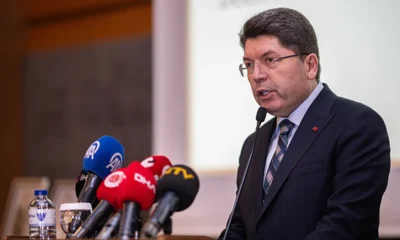
 Daily Agenda2 days ago
Daily Agenda2 days agoMinister of Justice Tunç: “The regulation regarding children involved in crime will come to the parliament after the commission works are completed.”
-
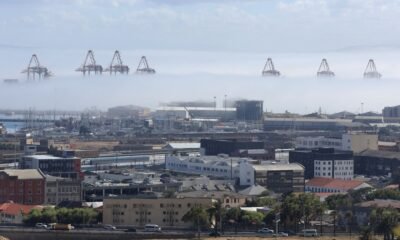
 Economy2 days ago
Economy2 days agoFacing US tariffs, South Africa steps toward trade deal with China
-
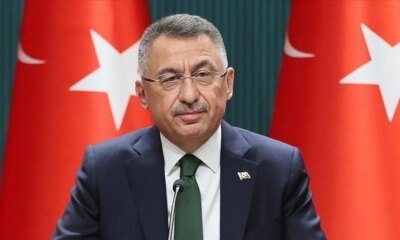
 Daily Agenda2 days ago
Daily Agenda2 days agoParliamentary Foreign Affairs Committee is going to the USA! Fuat Oktay: The constructive attitude of the congress is of critical importance in Türkiye-US relations
-

 Daily Agenda1 day ago
Daily Agenda1 day agoImmoral and excessive attack on women
-

 Sports2 days ago
Sports2 days agoTurkish center Alperen Şengün named in 2026 NBA All-Star
-

 Sports1 day ago
Sports1 day agoAkar carries Türkiye’s hopes into Olympic short track spotlight
-
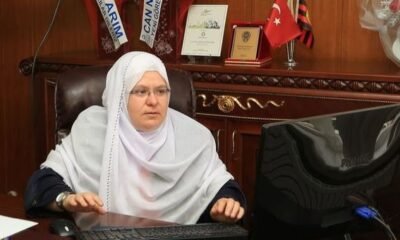
 Politics1 day ago
Politics1 day agoArrest, outrage after far-right man targets Turkish mayor’s dress
-
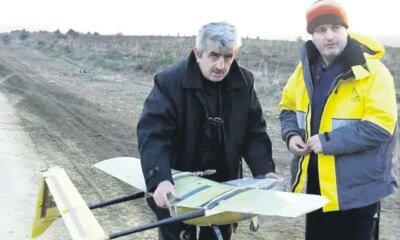
 Daily Agenda2 days ago
Daily Agenda2 days agoA Akıncı passed from this world




